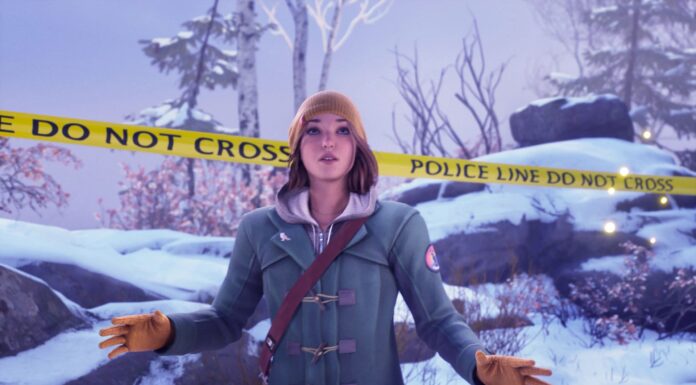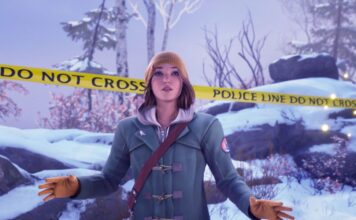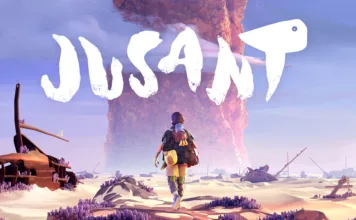After having been out for a decade in Japan, English-speaking visual novel fans never thought they’d see the day that the critically acclaimed visual novel Dies irae ~Amentes amentes~ would be localized. Luckily, thanks to efforts by its fans, a localization was fan-funded and successfully completed about a month ago by Conjueror, ReadingSteiner, GundamAce, GareJei, and Qaenyin . Because of the unusual circumstances the Dies Irae localization was made under (that is, that it’s a highly beloved visual novel that went untranslated for years because of its length and complexity among other reasons) we thought it’d be interesting to talk to its localization team about Dies Irae and the daunting task of localizing it–thankfully, we were able to get in contact with most of the localizers and do exactly that.
—
Let’s start at the beginning: Tell us about yourselves the visual novels you’ve worked on before Dies Irae.
John Hooper (JH): My name is John Hooper, also known by the handle GundamAce. I was the localization director and one of the translators on the project. I am currently the CEO and head translator for Lemnisca LLC, a localization company for Japanese->English software. I worked on fan-translations of visual novels for about 4-5 years before I went official with the localization of the Regista suspense/sci-fi visual novel Root Double -Before Crime * After Days- Xtend Edition.
Gare: I’m Gare. I worked on the project as an editor. The first project I worked on was a hard sci-fi / romance visual novel called Himawari. I then went on to work on Tokyo Babel (an action-packed chuuni VN) before getting recruited for Dies irae.
Conjueror: Hello. I’m Conjueror, and I’ve worked on visual novels Himawari and Tokyo Babel for MangaGamer, and Enigma and Miniature Garden for Fruitbat Factory. I’m currently working on another two projects, one of which is Seabed for Fruitbat Factory, and another title for MangaGamer that members of the community may have heard of.
Steiner: Hey there, my name’s Andrew Hodgson, I typically go by Steiner online. I was one of the three translators on Dies irae. I’ve been in the business for a little while now, having worked on Steins;Gate for JAST USA, a few bits and pieces for MangaGamer, and Valkyrie Drive for PQube Games.
Dies Irae is a very well loved visual novel in Japan–so why were no other groups translating it before you guys? Was it just its intimidating length?
JH: I think the reason no one had approached it before was because of its complicated prose and its length. It was a massive undertaking that even fans found too daunting to translate.
G: I’d say it’s the overall linguistic challenge of Dies irae, combined with the sheer length of the work. I think the game had a bit of a reputation in the community as one of those VNs that would be extremely difficult to work on.
C: Dies irae has been always known as one of (if not the most) difficult visual novels to read, let alone translate. Fan groups have tackled longer works in the past, but the text in Dies irae is not really something an amateur group could possibly handle. For it to happen one had to find an experienced translator/writer first and those usually don’t have the time to invest in working for no pay.
S: Pretty much to mirror what the other fellas said, translating is a significant investment of time and effort. Despite my love for the title, I certainly wouldn’t have approached it in an unofficial capacity.
So what lead you guys to group up and tackle Dies Irae?
JH: I was assigned onto Dies irae as the localization director and one of the translators by Regista, the company I worked for at the time, and was asked to assemble a localization team together. I sought out Conjueror and Gare because they were huge fans of the game who had translated excerpts from the game in their spare time. I chose Steiner because I knew him through a close friend and collaborator (Blick Winkel, my co-translator for several of my projects at Lemnisca) who also was a big fan of the game. Finally, I chose Qaenyin because he had worked with me on Root Double, and I knew I could trust him for the task.
C: GareJei and I originally met through his translations of select scenes from Dies irae on his blog. In fact, our first joint work together was Tubal Cain’s chant. I worked in a translation agency in Japan for a few years doing manuals and tourism pamphlets, but I wanted to take a shift towards more creative translating, and Dies irae has always been the work I aspired to translate. I actually tried pursuing it through other publishers as I slowly established myself with other titles, but as it happens, John Hooper contacted me and GareJei with the license instead after he saw our translations of Dies irae on YouTube that we did for practice.
S: I’m the outlier here, really. I didn’t ever expect to get on this project of all things, but as it turns out, a friend of mine (Blick Winkel) actually told John about my interest in the game as a fan. By sheer coincidence, John was looking for people he could trust to translate it, and the rest is history. If Blick and I had never collaborated on Steins;Gate, I don’t think I would be here talking about Dies irae now. I’m very thankful for the experience, however, all the guys on the team have become good friends and it was a hell of an experience.
What were some of the hardest parts of the localization process for Dies Irae?
JH: Trying to maintain the feel and nuance of the prose without making it too over the top was a challenge.
G: Probably Tubal Cain’s incantations. Also, keeping track of all the recurring terminology in the game.
C: The obvious answer is the chants written in ancient Japanese; some were so hard to “decipher” we actually had to call in the original writer for help. But those were few and far in between. What proved to be a more consistent problem was Dies irae’s tendency to subtle and ambiguous foreshadowing that sometimes was very hard to penetrate even with the intimate knowledge of the script. We read each other’s text and discussed what was meant by this or that… it was almost like a literature class.
S: I’d say that knowing the script through-and-through was a necessity here, there’s a lot of subtleties woven into the prose and maintaining that connection was a real challenge in the translation process itself. A personal challenge for me was maintaining the links to esoteric Buddhism (a few of the more subtle parts flew over the other guys heads and I had to catch ’em) and making sure all of the Norse terms were uniform. I converted the terms to Germanic Norse as some of the Norse in the original was all over the place in terms of spelling variation. I also did my best to ensure that the Hebrew terms were on point.
Were there ever any moments where any of you thought you got in way over your head with Dies Irae?
JH: From time to time. It was just that kind of game.
C: There was one script towards the end of the game that almost drove me mad with the weirdest writing I’ve seen in a game, but I had my eyes set on Dies irae for my entire visual novel career so I wasn’t going to give up.
S: There were… a lot of moments like that. Going through and trying to make sure the Norse, Hebrew, and so on was proper was a real pain. I still worry some things slipped through the cracks there. Either way, I pushed on.
Tell us about a typical day working on Dies Irae.
JH: Honestly, I didn’t really approach it any differently from a normal project. For translating, I would just get to work, translate as much as I could in a day, and rinsed and repeated until I had finished my parts. For directing, it was a matter of keeping in constant communication with the rest of the TL team and other parties involved, supervising the overall work, and ensuring all areas related to the game itself were being taken care of on schedule.
G: I mostly worked on it like I would on any other project. Well, okay, so I was probably more excited than usual, since this was Dies irae, one of my favorite VNs ever.
C: I wake up. Listen to an audiobook, preferably with fancy prose for inspiration, as I play a game for a few hours. I translate for a couple of hours. I plan to listen to more audiobooks and play more games, but the translation chat blows up with discussion on how to handle this or that and that goes on until it’s dark outside. I squeeze in some more gaming if I can and work for another few hours until midnight. Then I watch a movie and go to sleep. If I have some extra time, I also eat.
S: Wake up. Blast the power metal. Work on Dies. Blink. Realize several hours have passed. Look at the group discussion. Discuss things. Cry. Look outside. It turned midnight long ago. You’ve forgotten something. It’s your cats. They’re screaming at you. When did they last eat? When did you last eat? Realize I’ve been living this exact situation for an undetermined amount of time. Foreknowledge. Foreknowledge.
Did knowing that there would be a physical release of this game add any unusual difficulties to the localization process that wouldn’t be present otherwise? (EX: Needing to abide by certain guidelines, censorship, etc.)
JH: Dies irae was the first title I worked on that was actually a case of reverse censorship, where we restored censored parts from the Japanese version. At any rate, no, it was no different from any other project.
C: Not that I’m aware of, but I was only responsible for the script in the game. John Hooper handled all the extracurricular activities for us.
S: Don’t think there was much more to it than we needed to, but I only handled the translation aspect of the game.
What do you guys think makes Dies Irae so special? What sets Dies Irae apart from other visual novels?
JH: The prose and cast, I would say.
G: For me, it’s the characters that make Dies irae come to life. Each of them have their own motivations, circumstances, and unique presence. They’re all fleshed out and memorable. I doubt you could find anyone without at least one or two really memorable lines and/or scenes.
C: Dies irae is the quintessential chuuni experience that pretty much introduced it as a term to the medium. Having been written over many years it’s a gigantic work that explores a variety of otherworldly themes pertaining to near godhood, and raises the stakes to big bang tier. It’s hard to top.
S: Dies irae is a crazy chuuni game that explores philosophical themes and has some great meta aspects. To top it off, each route (provided you play it in the proper sequence) ramps up the ante until it peaks in both scale and insanity. For me, the characters make the game. The opera itself is fairly par for the course, but it’s truly the actors who make it such a stunning piece of work.
Almost done! We’ll end with the most important question: Favorite character?
JH: Trifa.
G: Reinhard.
C: Mercurius. I’m sure that’s hardly a surprise.
S: Gotta be Spinne for me. He’s a man of culture, after all. (Marie best girl, though.)
















